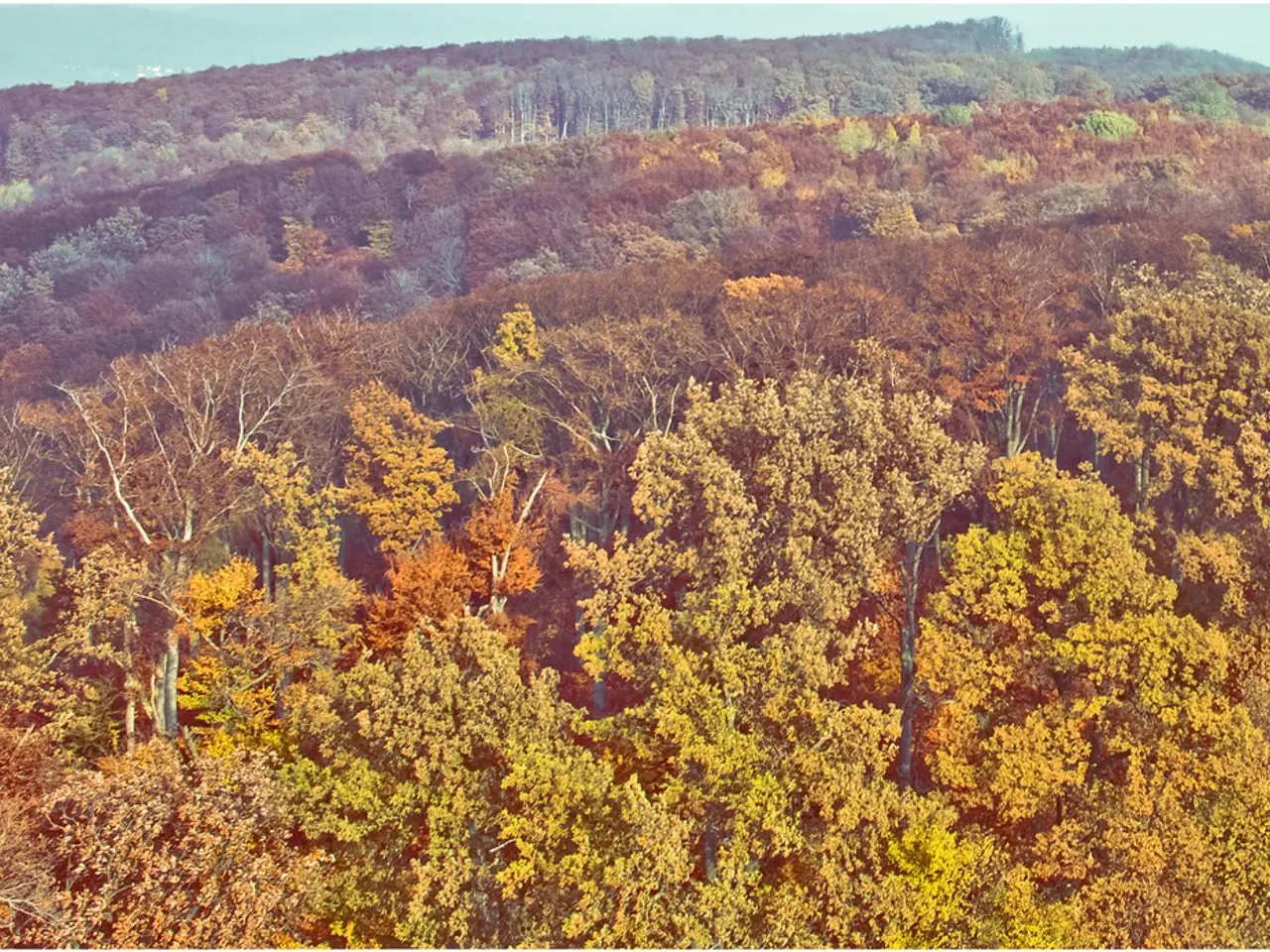Newly launched 'Green Employment' initiative
Discover a Green Career Path in North Rhine-Westphalia
North Rhine-Westphalia (NRW), Germany, is home to a variety of green professions that cater to sustainability, energy transition, environmental protection, and the circular economy. With strong regional and national commitments to climate goals and green innovation, these sectors offer favourable career prospects and further education opportunities.
Diverse Green Professions in NRW
- Renewable Energy Technicians and Specialists
- Work on projects such as offshore wind farms, solar energy systems, and battery electricity storage.
- Examples include wind turbine technicians and battery system technicians.
- Energy Efficiency Consultants and Auditors
- Roles involve energy optimization, regulatory audits, and digital monitoring for better energy use.
- Companies like TotalEnergies’ affiliate TENAG in Germany offer positions in this field.
- Environmental and Circular Economy Experts
- Focus on sustainable material use, low-carbon construction, and recycling, particularly in public infrastructure projects.
- The cement industry in Germany, including NRW, is shifting towards low-carbon technologies and green retrofit programs.
- Green Mobility and Electric Vehicle Infrastructure
- Professionals work on electric vehicle charging infrastructure, electric mobility services, and related solutions.
- NRW benefits from networks of thousands of EV charging points operated by companies like TotalEnergies.
- Sustainability and Climate Change Project Managers
- Roles drive climate-neutral building stock, renewable projects, and green innovation in public or private sectors.
- Vocational training initiatives integrate sustainability aspects to support these professionals.
- Vocational Training Providers Supporting Inclusion and Diversity
- Organizations like GIZ offer vocational training including green-related fields, emphasizing part-time options and inclusive vocational education.
Career Prospects
- The growing demand for energy transition and climate policies means careers in these sectors are expanding rapidly in NRW and Germany overall.
- Public infrastructure and retrofit projects sustain demand for green construction and material experts.
- Digital skills in energy optimization and monitoring increase employability and open further advancement opportunities.
- Regional initiatives, such as “No school-leaving certificate without future prospects” (KAoA) in NRW, facilitate smooth transitions into green careers.
Further Education and Advancement Opportunities
- Many vocational training programs are linked to advanced technical colleges (Fachhochschulen) and universities offering specialized degrees in renewable energy technology, environmental engineering, and sustainable management.
- Continuous professional development through certifications in energy auditing, environmental management, or specialized green technology.
- Participation in regional and EU-funded projects that emphasize innovation in low-carbon technologies and digital transformation.
- Opportunities to move into project management, consultancy, research, and policy advisory roles after initial vocational training or technical education.
- Support for trainees from diverse backgrounds, including part-time training and career guidance, is provided by organizations like GIZ.
Accessing Green Profession Training in NRW
The Chamber of Agriculture North Rhine-Westphalia is offering a telephone consultation for green profession training on February 10, from 2:00 PM to 4:00 PM. To access this consultation, call 02303 / 96161 - 54. This consultation does not require registration.
Embrace a sustainable future by exploring the diverse opportunities in green professions. With a connection to nature, love for animals, technical understanding, and an enjoyment of independent work, you can find a fulfilling career path in North Rhine-Westphalia's thriving green economy.
In North Rhine-Westphalia (NRW), one could explore a lifestyle inspired by the home-and-garden sector as they delve into green professions, with opportunities in sustainable gardening and landscaping, promoting eco-friendly practices in public spaces and gardens. This could simultaneously contribute to the region's circular economy by focusing on the reuse and recycling of materials.
Moreover, further education options abound for those interested in home-and-garden preservation, with programs available at advanced technical colleges (Fachhochschulen) and universities, offering specialized degrees in environmental horticulture, landscaping, and sustainable urbanism.




